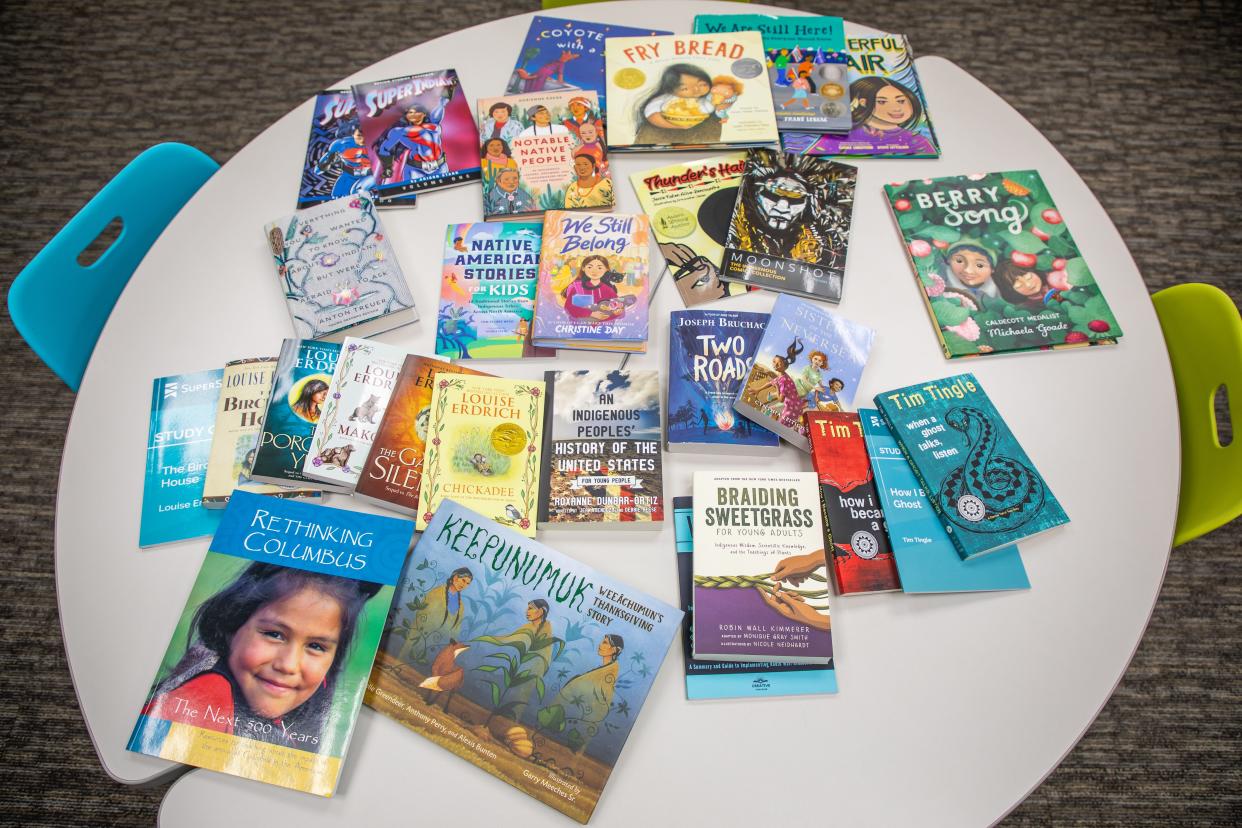Potawatomi Tribe challenges stereotypes of Natives by donating books to local schools

Potawatomi librarian Lois Frank knew she had some work to do this school year when she saw how the covers of some books at local school libraries depicted her ancestors.
Frank had initially been invited by officials with the Crandon School District, adjacent to Potawatomi tribal lands in Forest County in northern Wisconsin, to “help weed out” books that may be inappropriate and inaccurate in educating readers about the first nations in what is now Wisconsin.
Frank said she saw books that depicted outdated, stereotypical and even racist views of Native Americans in the school library.
Many of these stereotypical views were popular in the 1950s and could involve depicting Native Americans as one monolith with red skin, all wearing full headdresses with little else, and using archaic weapons and tools in the 1800s as European immigrants arrived.
The reality is many tribes adapted to the times and technology historically and presently, while fighting to keep their culture and lands.
After a thorough examination, Frank rooted out the historically inaccurate and stereotype-feeding books. She said the racism in some were obvious while others were more subtle.
“After that, we wanted to show our appreciation,” Frank said.
That meant donating dozens of books in December from the Potawatomi Library to not only the Crandon School District, but to other surrounding school districts, including Wabeno, Laona and Goodman.
These donated books were written by Indigenous authors and provide knowledge to readers from Indigenous perspectives.
They include authors such as Tim Tingle, who writes historical fiction mostly involving the Choctaw Nation that’s been popular with young readers around the world.
Other books include “The Night Watchman” by Louise Erdrich and “Braiding Sweetgrass” by Robin Wall Kimmerer, who is Potawatomi.
These stories include showing how some Indigenous families are working to rediscover and revitalize their heritage in modern times and why that’s important.
The donated books come from the Potawatomi Library, which contains around 4,000 titles by mostly Indigenous authors from all over Turtle Island — the Indigenous term for North America.
Some of the books in the library had been banned in school districts in other parts of the country because they shed light on the atrocities committed against Indigenous peoples by European colonizers and parents complained that the schools were teaching “white guilt.”
But the Potawatomi Library keeps its doors open for teachers around the state who are looking to become compliant with Act 31, which mandates education about Native peoples in Wisconsin public schools.
The Potawatomi Library donated 26 books to the elementary, middle and high school libraries in the Crandon School District, where 42% of the students are Native, mostly being drawn from the Forest County Potawatomi Community and nearby Sokaogon Mole Lake Ojibwe Reservation.
“It’s important for Native students to see themselves in books,” Frank said.
She said many of the old, stereotypical books that had been in the school libraries before she pulled them were dusty and hadn’t been read in years, but hopes these new books will be well-read both Native and non-Native students.
“I hope they have a huge effect (for non-Native students) and provide a little more understanding of their fellow (Native) students and change the way they think about Native Americans,” Frank said.
Frank Vaisvilas is a former Report for America corps member who covers Native American issues in Wisconsin based at the Milwaukee Journal Sentinel. Contact him at fvaisvilas@gannett.com or 815-260-2262. Follow him on Twitter at @vaisvilas_frank.
This article originally appeared on Milwaukee Journal Sentinel: Potawatomi Tribe challenges stereotypes by donating books to schools

